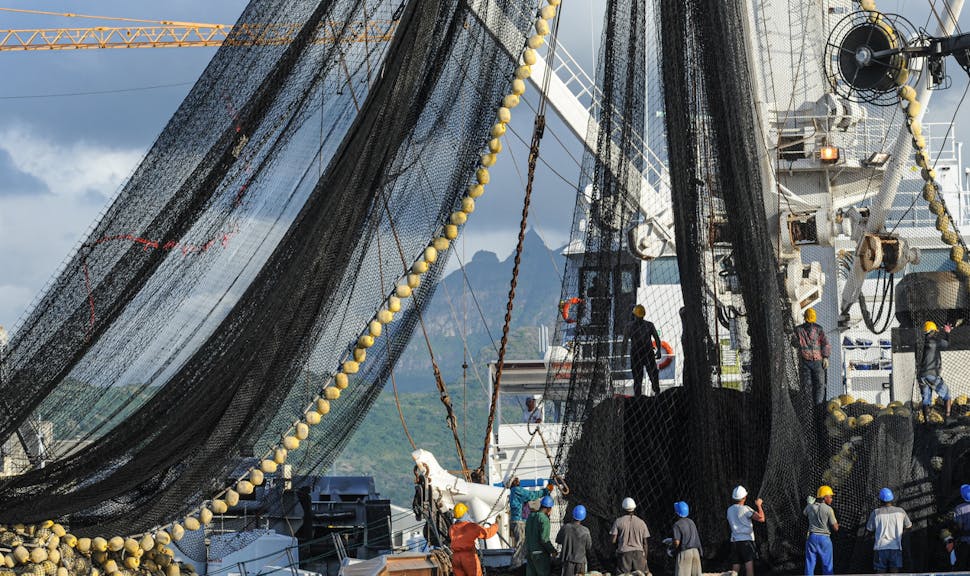
March 11, 2021
Fighting biodiversity loss with science and corporate commitments
An interview with Marie Bogataj and Céline Soubranne
5 minutes
Original Content: AXA Research Fund
Climate change is clearly seen as being a key risk that the world must adapt to and mitigate. Biodiversity is being increasingly discussed, but why is it important?
Marie B. - Climate change has made headline news and the top of the political agenda over the past years and is, rightly so, at the foreground of the most pressing issues facing society today. However, the loss of biodiversity is another key global risk that urgently requires increased attention and action. Biodiversity provides the air we breathe, the food we eat, the water we drink, amongst other vital services of considerable value and on which life depends. It also has social, cultural and spiritual significance. These natural resources and associated ‘eco-systemic’ services are not infinite, and their loss has the potential to seriously affect economic and social stability, which is why current indicators - up to 100,000 animal and plant species disappear each year - are concerning. We need to be aware of the repercussions of natural ecosystems loss and act accordingly, as soon as possible.
What is the role of Science in assessing biodiversity-loss-related risks?
Marie B. - Science analyzes and quantifies the impact of risks related to biodiversity-loss and models their possible evolution. It highlights how interconnected global risks are and how biodiversity relates to the planet’s other issues. Biodiversity and global warming are closely linked. Preserving the first can mitigate the severity of the second. Oceans, forests and soils are important sources of carbon absorption and their loss contributes to climate instability. The loss of biodiversity is also a matter of health and resilience. Natural ecosystems are essential to life on earth and health through the production of oxygen and water regulation, as well as resistance to flooding through soil retention. Biodiversity also has important security impacts, if only through the scarcity of resources. Land degradation and the decrease in fish stocks for example, call into question the ability to feed a world population estimated at 10 billion by 2050. Natual ecosystems alterations also generate migrations and cnflicts. Almost 40% of intra-state conflicts over the past 60 years were directly linked to tensions over natural resources.
Last, the preservation of biodiversity is also an economic issue. The destruction of certain habitats can affect sectors as diverse as agriculture, fishing, real estate development, tourism, public health and insurance.
It is interdisciplinary scientific research which provides the rationale for the design of the most relevant action.
How does AXA support research in biodiversity from both research and corporate perspectives?
Marie B. - Through the AXA Research Fund, AXA has made biodiversity preservation a priority of its support to environmental research. Over 60 projects in the Fund’s project portfolio directly address the environmental, societal and economic effects of biodiversity loss. Among the most recent initiatives, a Marine Biodiversity Fund was launched in 2019 to support 8 Postdoctoral Fellowships as was the AXA Chair on Building Coastal Resilience Naturally at University of California, Santa Cruz. Research supports the insurance industry’s action in biodiversity by providing invaluable information on the quantification and measurement of the key role of biodiversity to better integrate it in economic decisions. It also supports and informs the development of solutions around the reforestation of natural habitats, raising the water table in peatlands and sustainable agricultural practices that help to better direct investments and develop insurance products that help preserve and restore natural ecosystems. This alignment of mission, between insurance and risk research, has been the driving force behind AXA’s commitment to dedicate €250M to the AXA Research Fund, to fund top-tier innovative research projects and disseminate their outcomes to inform public and private decision making.

Céline Soubranne
Former Chief Corporate Responsibility Officer
We view the biodiversity challenge as a natural extension of our climate efforts.
More specifically, what is the impact of biodiversity-loss on the insurance business?
Céline S. - Biodiversity loss endangers ecosystemic services, which threatens both society and businesses that depend on them, and in turn investors and insurers that rely on a well-functioning economy. The potential loss of key ecological services endangers not only populations but also certain businesses that depend on them and can therefore become a concern for investors. Investors’ ability to understand and map these potential risks would enable them to identify opportunities and in doing so, help support solutions rather than environmentally unsustainable business practices. We view the biodiversity challenge as a natural extension of our climate efforts. Since 2018, we have taken several commitments: In 2018 we publicly decided to investigate how biodiversity loss is impacting society and how we can act both as an insurer and an investor by signing up to a French initiative called Act4Nature. In 2019, during the G7, we launch a report with several recommendations co-developed with WWF including the creation of a Taskforce on nature-related financial disclosure. We are now part of the informal working group which is designed to launching the TNFD in 2021.
One recommendation from our report was to develop biodiversity risk metrics adapted to investor needs. As few biodiversity-related metrics and KPIs are truly adapted to the needs of investors, we have supported, with 3 other assets managers, a public call for proposals to create or help generate the creation of a player able to provide an indicator measuring the impact of our investments on natural capital. In 2020, Iceberg Data Lab, in partnership with I-Care Consult, was unanimously selected as our partner for the next three years.
AXA has been one of the first movers in the financial services industry to act for action on climate change as early as 2015. What is AXA doing in the realm of biodiversity preservation from a business and sustainability perspective?
Céline S. - In 2019, we announced our third Impact Investment
fund with a strong focus on climate and biodiversity. It invests to protect and restore natural capital, promote resource efficiency and improve the resilience of vulnerable communities to the effects of climate change and biodiversity loss. In 2020, we doubled this impact fund’s size to 350M$. Thanks to AXA XL’s work, we may soon be able to insure mangroves, which act as powerful natural protection for coastal areas in case of storms but are currently unprotected by market-based mechanisms. AXA XL also actively contributes to the Ocean Risk and Resilience Action Alliance (ORRAA), an alliance focused on developing risk management strategies using the experience and expertise of the insurance and broader finance community, to address ocean risk and build resilience in the regions and populations that need it most. Last but not least, in 2020, we signed a 3-years partnership with WWF to tackle biodiversity risks. The partnership includes support on crafting the TNFD as well as biodiversity impact metrics and other coming policy developments related to deforestation or the oceans.
Read the AXA Research guide: "Biodiversity at Risk"
Read nowTags:
Biodiversity



